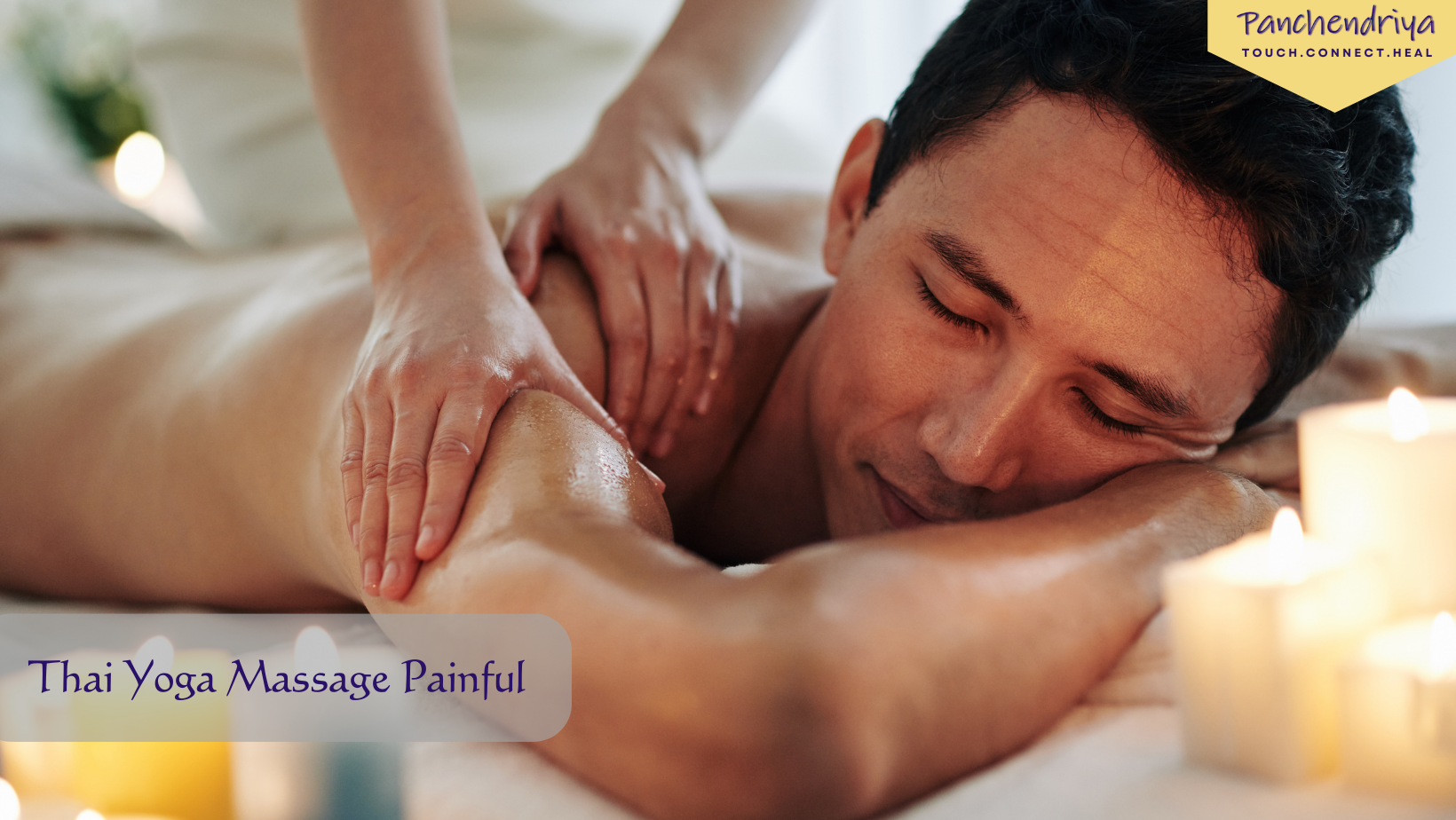Is Thai Massage Therapy Painful? A Beginner’s Guide to What to Expect
What is Thai Massage Therapy?
Thai massage therapy, also known as Nuad Boran, is a traditional healing practice from Thailand. Unlike Swedish or deep tissue massages performed on a table with oil, Thai yoga massage takes place on a floor mat while you wear loose clothing. The therapist uses their hands, thumbs, elbows, knees, and even feet to apply pressure, mobilize your joints, and stretch your body in various yoga postures.
Here’s what differentiates Thai yoga therapy from other massage styles:
- Focus on Sen Lines: Thai massage theory revolves around “sen” lines, energy channels believed to run throughout the body. Therapists target these lines to promote energy flow and improve well-being.
- Active Participation: Unlike passive massages where you simply lie down, Thai yoga massage might involve some active participation from you. The therapist will gently guide you into different positions to enhance the stretch.
- Dry Massage: Unlike massages using oils or lotions, Thai yoga massage is performed dry, allowing for better grip and deeper acupressure techniques.
Will It Hurt?
Thai yoga massage can feel intense at times, but it shouldn’t be excruciatingly painful. Here’s a breakdown of what you might experience:
- Initial Discomfort: As the therapist applies pressure to tight muscles and stretches your body, you might feel some initial discomfort. This is normal and usually subsides as the session progresses.
- Communication is Key: If anything feels too painful, don’t hesitate to speak up! A skilled therapist will adjust the pressure or modify positions to ensure your comfort.
- A Deep Stretch: Thai yoga massage incorporates deep stretches that can feel intense, especially if you have tight muscles. However, these stretches can ultimately improve your flexibility and range of motion.
- Post-Massage Soreness: It’s common to experience slight soreness after a Thai yoga massage, similar to what you might feel after a strenuous workout. This is a sign that your body is releasing tension and should subside within a day or two.
Benefits of Thai Yoga therapy
While some initial discomfort is possible, the benefits of Thai yoga therapy far outweigh any temporary aches:
- Improved Flexibility: The deep stretches in Thai yoga therapy can significantly enhance your flexibility and range of motion.
- Enhanced Circulation: The therapist’s manipulations can stimulate blood flow, promoting better circulation and oxygen delivery throughout your body.
- Stress Relief: Thai yoga therapyis a powerful tool for stress reduction. The combination of pressure, stretching, and assisted yoga postures helps to melt away tension and promote relaxation.
- Increased Energy Levels: By improving circulation and releasing tension, Thai yoga therapy can leave you feeling energized and revitalized.
- Pain Relief: Yoga massage can effectively target muscle tension and knots, providing relief from chronic pain and stiffness.
Preparing for Your First Thai Yoga Therapy
Now that you know what to expect in terms of potential discomfort, here are some tips to prepare for your first Thai Yoga therapy:
- Wear Loose Clothing: Opt for comfortable, loose-fitting clothing like sweatpants and a loose t-shirt that allows for easy movement.
- Communicate Any Concerns: Inform your therapist about any injuries, medical conditions, or areas of pain you want them to focus on or avoid.
- Hydrate: Drink plenty of water before and after your massage to help flush out toxins released during the session.
- Eat Light: Avoid heavy meals before your massage, as it can make you feel uncomfortable during the session.
- Relax and Breathe: The key to enjoying Thai Yoga therapy is to relax and let go. Trust your therapist’s expertise and focus on your deep breathing.
Finding a Qualified Therapist
To ensure a safe and enjoyable experience, it’s crucial to find a qualified Thai Yoga therapist. Here are some tips:
- Look for Certification: Search for therapists certified by reputable organizations like the North American Thai Yoga Massage Alliance (NAThai Yoga MassageA).
- Read Reviews: Check online reviews and recommendations to get a sense of the therapist’s experience.



